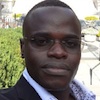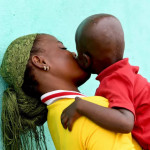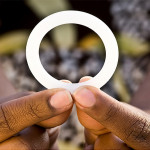 |
| Paul Semugoma |
In early 2004, having finished medical school and a stint up-country in a war zone that left an indelible imprint on my mind, I found myself in a good place – working in a nice, secure job in Kampala, the capital of Uganda, having accepted my sexuality. I am a gay man. I realized that wishing it away was nothing short of delusional.
I had also found Kampala’s gay community – "Kuchus," as we call ourselves.
My story starts with a phone call. A friend of mine told me that one of our loose acquaintances, a member of the community, had just crashed, been diagnosed with HIV. Would I meet with him, since many of my patients were HIV-positive and I worked in one of the few clinics that stocked the precious new drugs? Sure.
As I began the consultation, he asked me many questions. As far as he knew, men got HIV from women. Had he been infected by a lover who had slept with a woman? Was he correct in assuming that Kuchus were not at risk of HIV since we didn’t have sex with women? What was the connection between gay sex and HIV? I thought I knew, but I had no idea.
It has been years, but I still remember my horror, on that quiet evening in front of my computer, when I realized the connection. I realized my lack of knowledge, my ignorance, and the risks that we Kuchus had been exposing ourselves to because of our lack information.
I needed to correct this, to spread my newly gained knowledge. I naively believed that since it was about HIV, people would listen. Since I was a doctor, people would listen. I was wrong.
It has been years, and since then I have come to understand that us gay Ugandans, us Kuchus, are known as a key population in HIV epidemiology. We have a higher chance of both getting and giving HIV than the general population. But this simple knowledge is not enough.
It has been years, but since then I have come to understand that fear and prejudice about our sexuality have stood like a range of mountains between us and prevention, care, and management of HIV. It is this prejudice that makes the provision of condoms and of lubricants for safer gay sex a criminal act. It is this prejudice that considers advocacy and education about safer gay sex a “promotion of homosexuality.” It is this prejudice that makes our efforts to save lives an offence in the eyes of the law.
Today, I am far from Uganda. I have been self-exiled. I talked too much, drew too much attention to myself and the plight of my community for it to be comfortable for me to stay in my home country. But I have not been silenced. We, gay men, gay Africans, Kuchus – we exist in Africa. We are at increased risk of HIV. By preventing this infection, by making it easier for those of us who are already infected, we can benefit ourselves, our communities, and our countries.
The barriers to access to HIV services, including education and support, stand before us like mountains - mountains of fear, mountains of prejudice, mountains of ignorance. These barriers, including those that come from within us, need to be overcome.
Paul Semugoma, MD, a gay HIV/AIDS physician from Uganda, gave a passionate speech on behalf of LGBT and HIV-positive people during the XIX International AIDS Conference in Washington, DC, in which he also came out as gay. He went to South Africa after the 2012 conference and has not returned to Uganda since then. Click here to read our 2013 Q&A with Semugoma. This article was originally published on the International AIDS Society blog.






Comments
Comments